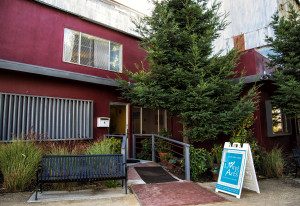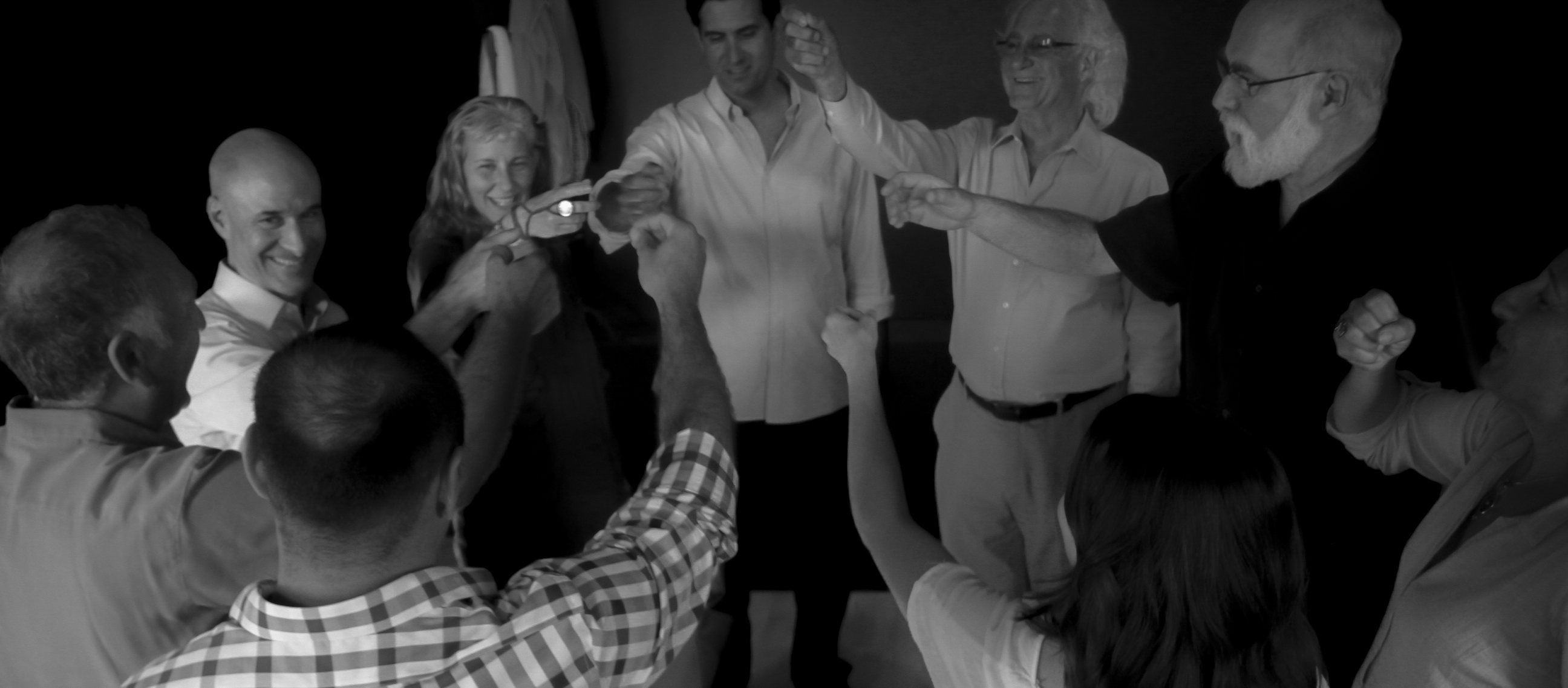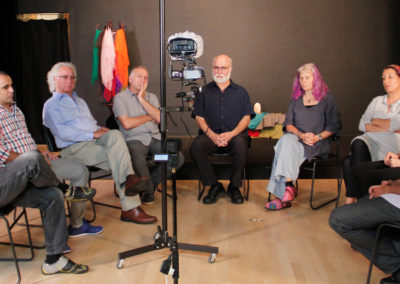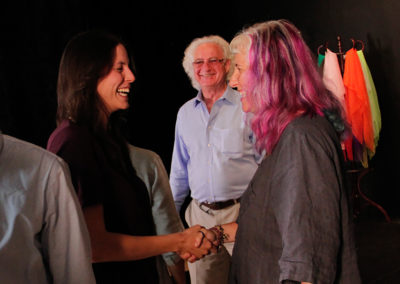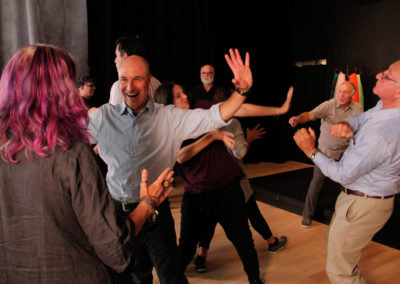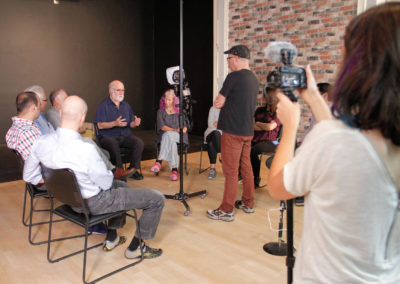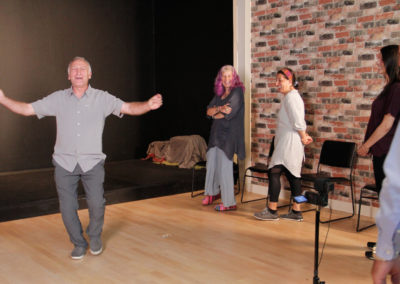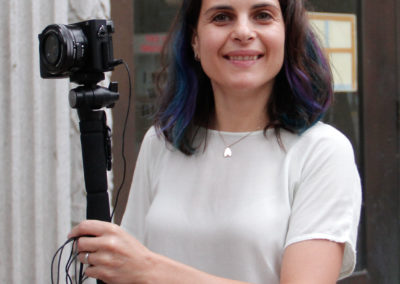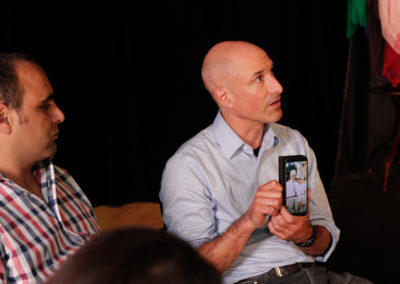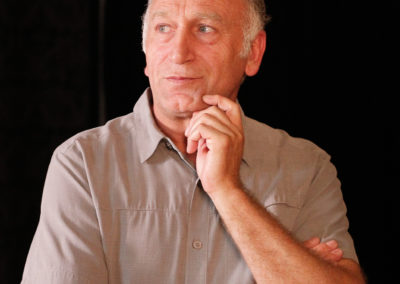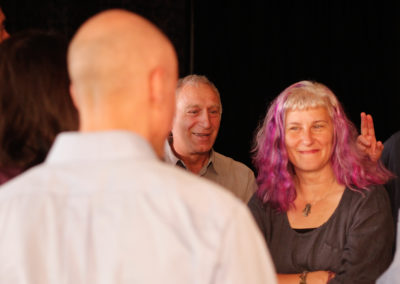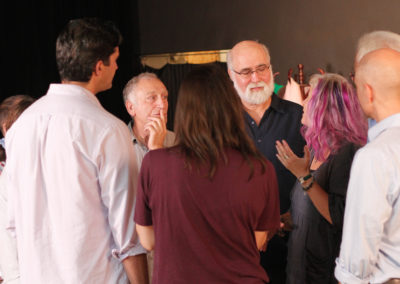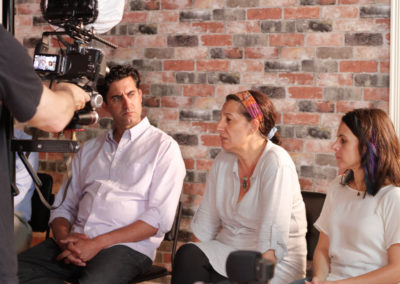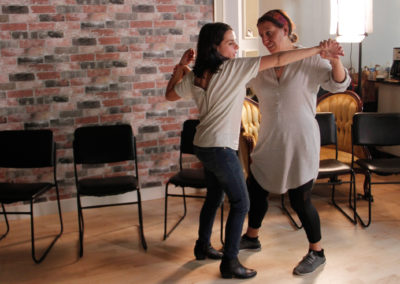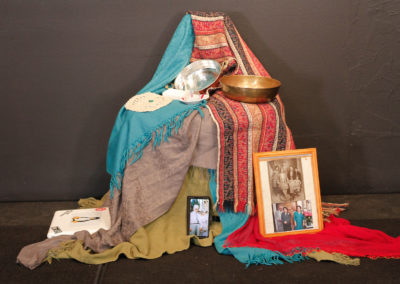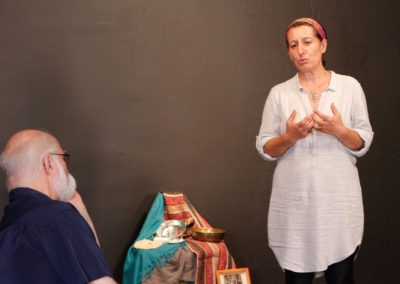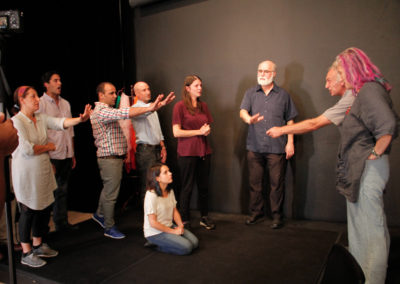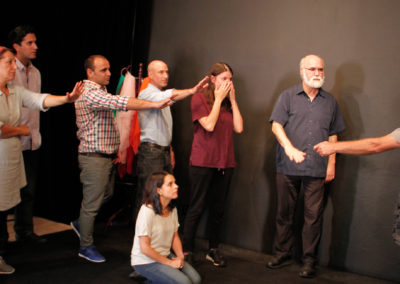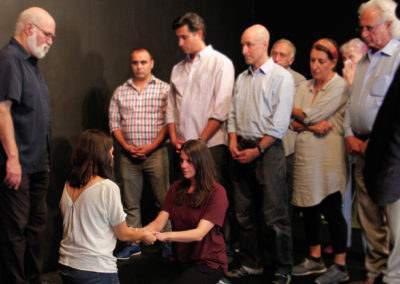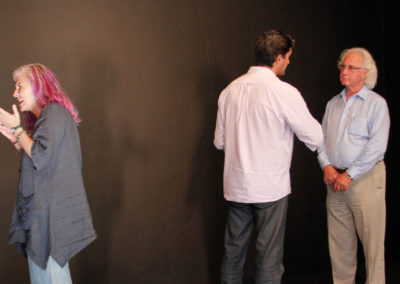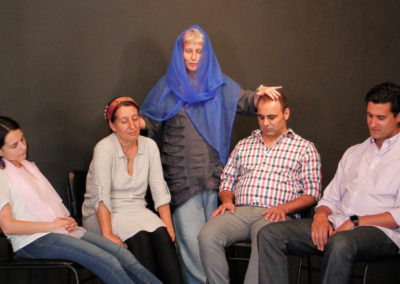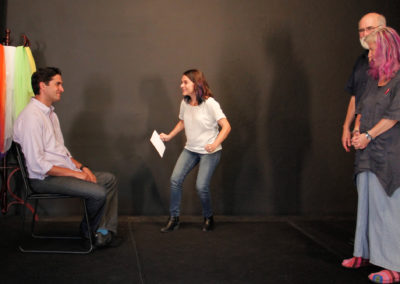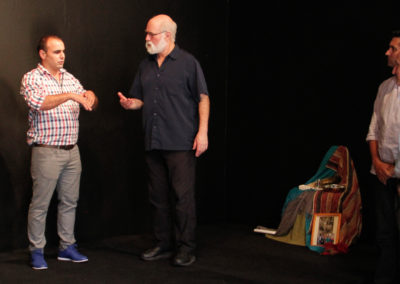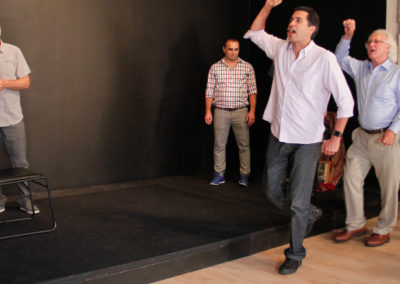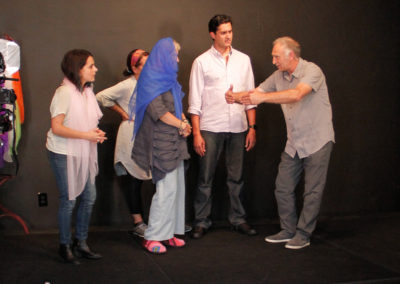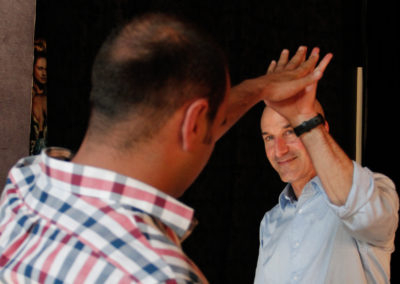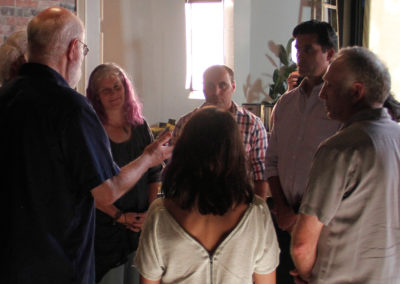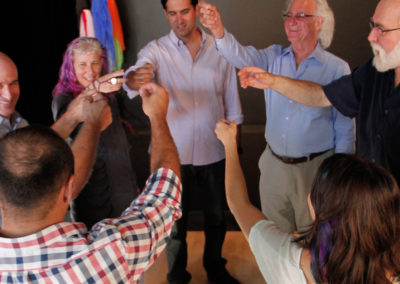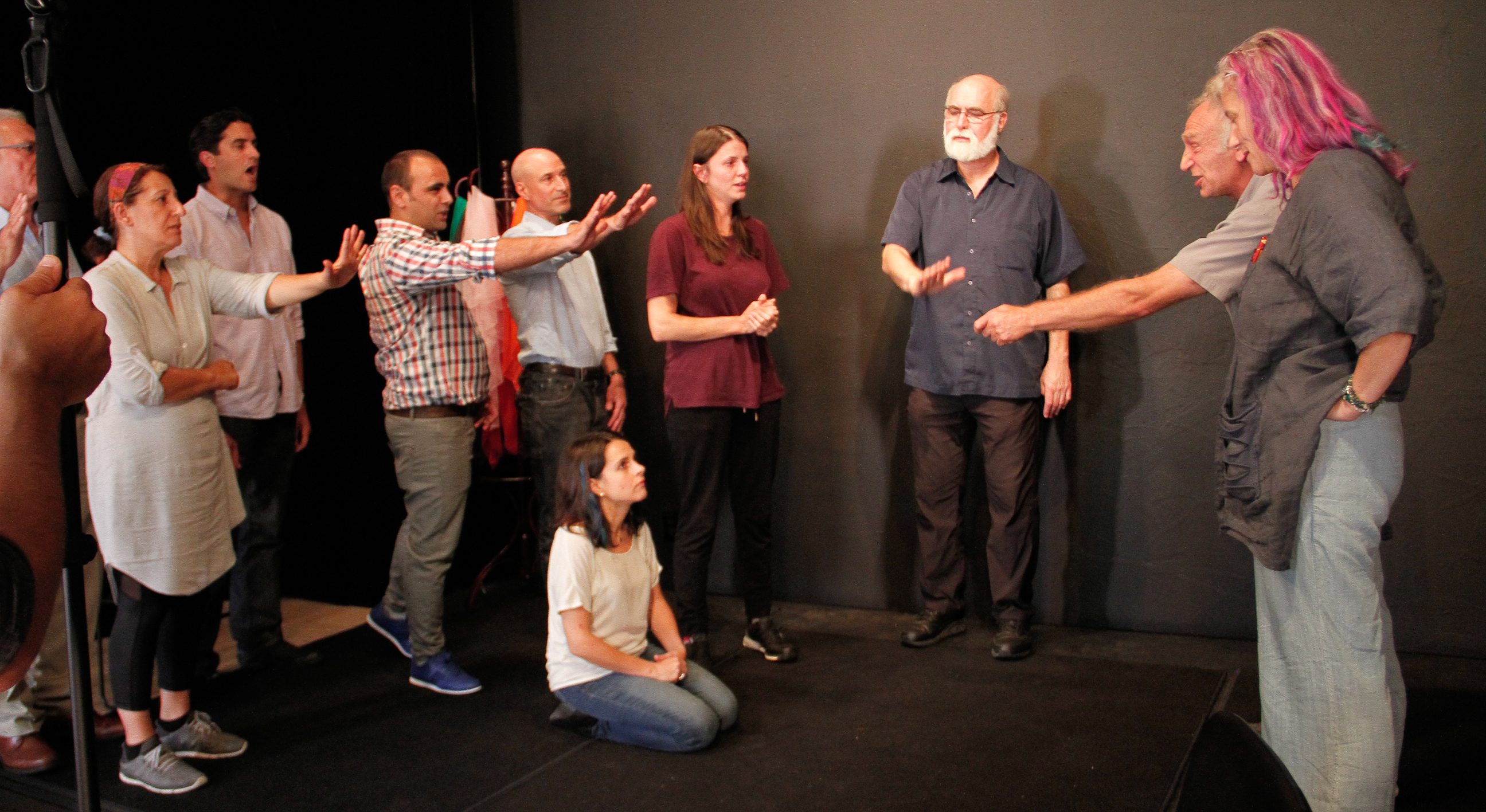Diverging Stories Intertwined Destinies
A 90-minute Documentary Film in Pre-ProductionExploring historical legacies of Turks, Kurds, and Armenians of Turkey
By Nermin Soyalp & Burcu Tung
Sponsored by Healing The Wounds of History
Synopsis
Armenians, Kurds and Turks, who have historically been in conflict, find common grounds in their immigrant lives during a series of drama therapy workshops in California. Personal transformation, historical legacy, immigration and home are explored through the participants’ narratives and the documentation of their daily lives. In addition, relevant historical contexts are illustrated through 2D animations elucidated by subject matter experts. In a world riddled with inequality, sexism and racism, this 90-minute documentary exemplifies how personal and collective traumas can be transformed through empathy and constructive action, paving way towards healing and community building.Why Diverging Stories, Intertwined Destinies? Why now?
How may individuals overcome transgenerational trauma? How can they navigate their historical legacies? What happens when they face their enemies? How can healing and transformation occur? Our work explores these key questions by bringing together individuals from communities that have historically been in conflict with each other. The rise of nationalisms and nation states over the past 200 years have resulted in numerous conflicts creating avenues for atrocities such as war, genocide, and forced displacement from ancestral lands. Such acts can cause extreme personal trauma for the individuals involved, whether victims, witnesses or perpetrators. When these traumas are transmitted to the next generation through adaptive behaviors, psychologically, socially, and (as we now know) epigenetically, they can have long-term effects on communities and societies at large. This is the nature of transgenerational trauma. Yet despite their hardships, humans tend to gravitate towards healing. A glimpse of resistance and perseverance can be seen in immigration stories. As such, we ground our work in hope and healing, in focusing on the potential of newly found lives. Our interdisciplinary approach forefronts the importance of personal experience for empathic engagement and that our world is made up of different histories and perspectives. We may never agree on particular viewpoints. No matter what descendants of perpetrators could do in hope of reconciliation, they may never be able to make things even for descendants of victims. But we believe that we can still listen and learn from one another. Once a bridge for empathy is built, then there is less chance for the perpetuation of systematic injustice and inequality. In performance and art, the empathic bridge is built swiftly, and emotions can be conveyed in their complexity. Utilizing the power of performance and expression, drama-therapy presents itself as an innovative tool for such engagement.Team
Co-Directors: Nermin Soyalp and Burcu Tung Workshop Director: Armand Volkas Director of Photography: Gohar Barseghyan Videographer and Music Supervisor: Jef Stott On-Set Photographer: Ayçin Çakı Advisors: Fatma Müge Göçek, Torange Yeghiazarian, and Flora Keshgegian
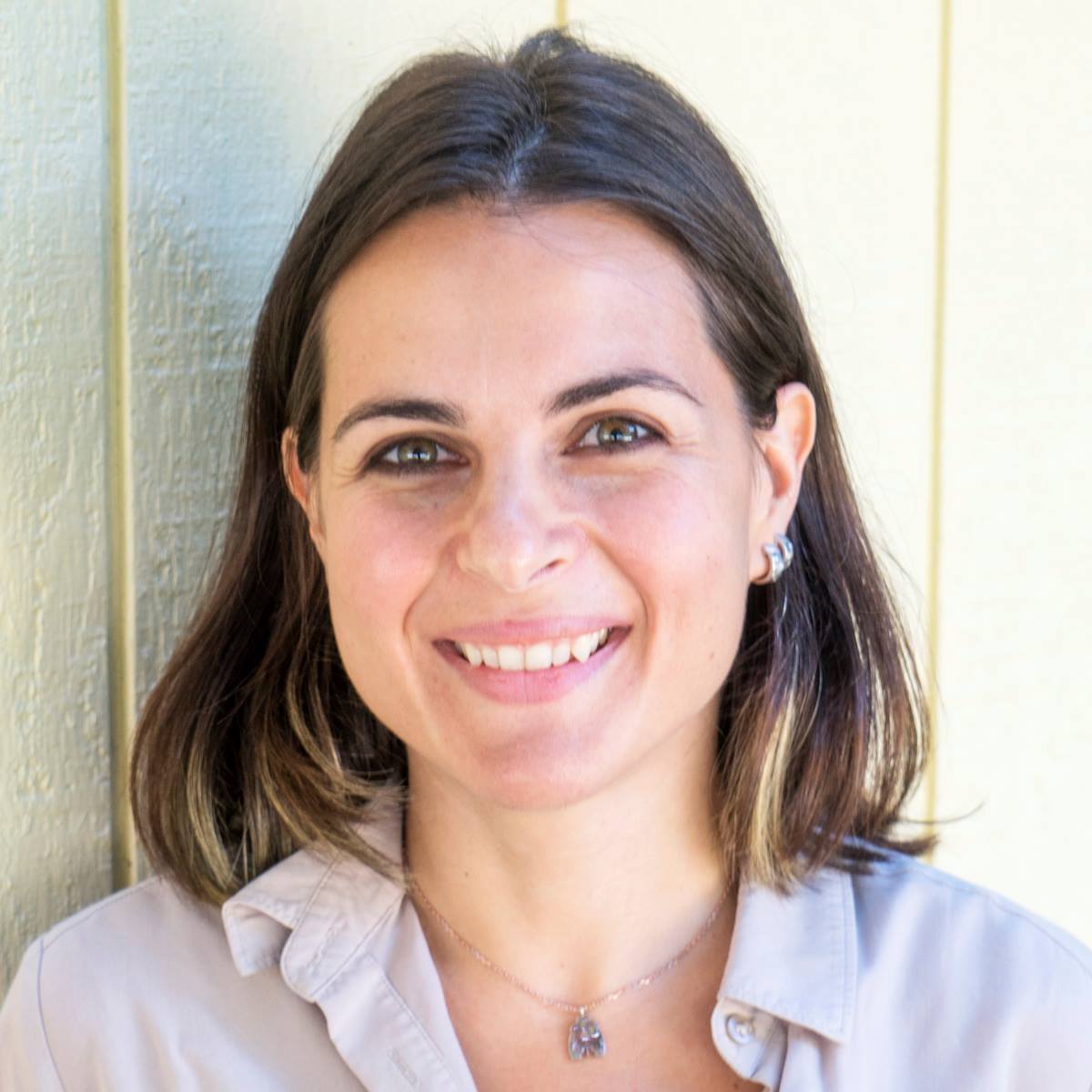
Nermin Soyalp
Co-Director
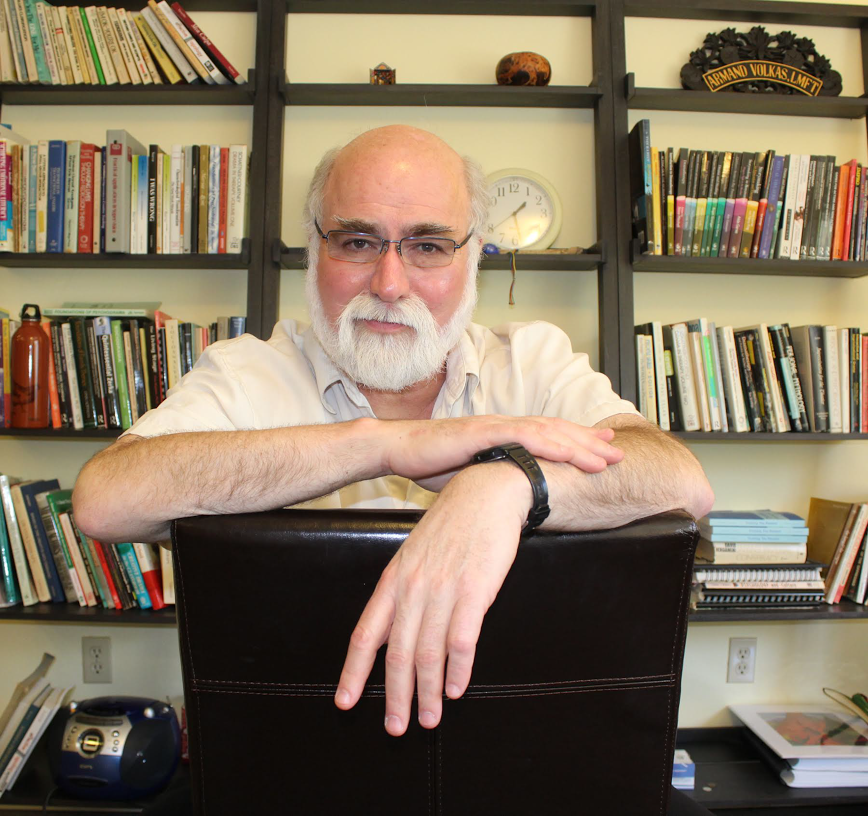
Armand Volkas
Healing the Wounds of History Director & Facilitator
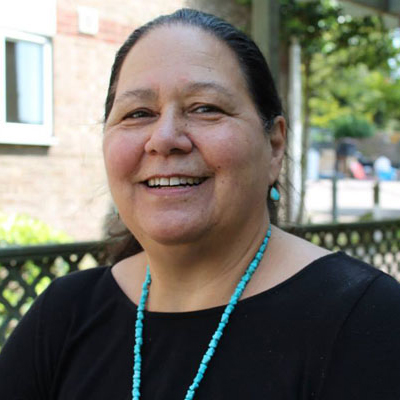
Fatma Müge Göçek
Advisor
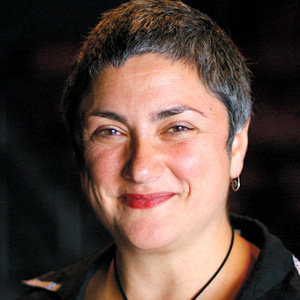
Torange Yeghiazarian
Advisor
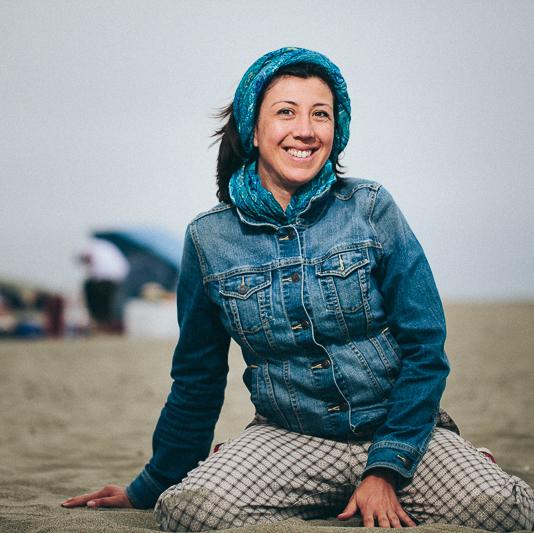
Aycin Çakı
On-set Photographer
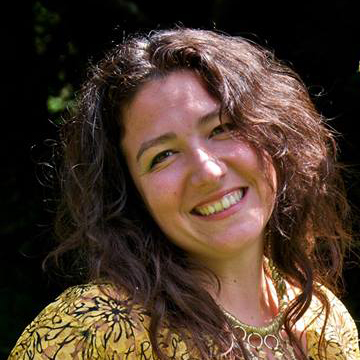
Burcu Tung
Co-Director
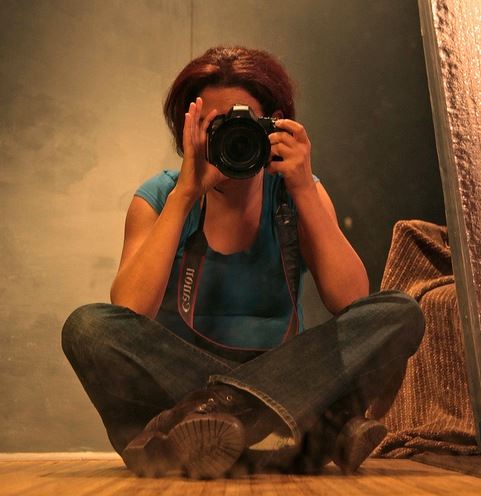
Gohar Barseghyan
Director of Photography

Flora Keshgegian
Advisor
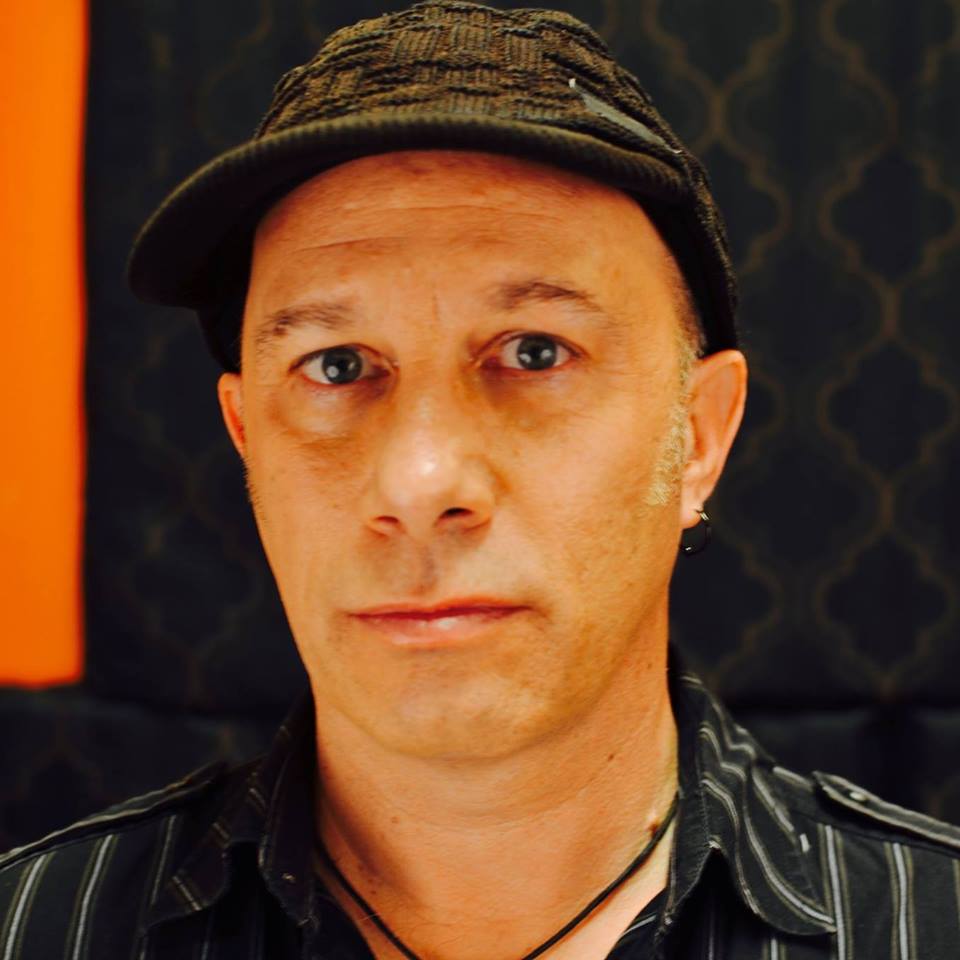
Jef Stott
Videographer and Music Supervisor
We extend our deep gratitude to workshop participants!
Only because of your courage and willingness to be part of Diverging Stories, Intertwined Destinies Documentary project, together we are able to make this vision a reality.
August 10, 2017 Workshop
Participants
- Peter Ajemian
- Memet Ali Alabora
- Meltem Arıkan
- Garbis Baghdassarian
- Asiye Dalga
- Pınar Öğün
- Adlan Özsoy
- Mehmet Tankan
August 10, 2017 Workshop Film Crew
- Producer & Director: Nermin Soyalp
- Workshop Director: Armand Volkas
- Videographer & Production Manager: Jef Stott
- On-Set Photographer: Ayçin Çakı
- Production Assistance: Philip von Furstenberg
Location: Downtown Oakland’s premier PROFOTO Photo / Video Production Studio
Do you want to Participate?
The next workshop will be conducted and filmed in Fall, 2018.
If you are a Turk, Kurd, or an Armenian with ethnic or religious heritage connected with Turkey or the Ottoman Empire, and you would like to participate in the workshop series and be part of this Documentary project, please contact us at info@bravevisions.orgParticipation Contact Form
Background
This film is about conflict, transformation, and understanding. It documents how drama therapy can be utilized to work with the legacy of historical trauma that can burden individuals with grief, pain, loss of meaning, and victimhood, amongst other things. The historical legacies explored in the film derive from Turkey, a country built in the aftermath of World War I and the collapse of the Ottoman Empire. At their shared motherland, Armenians, Kurds and Turks are at an impasse in terms of recognizing the different traumas their communities experienced as well as their different identities. For example, over half of the Turkish population living in Turkey today come from Muslim families displaced from the Balkans or Greece, who bear suppressed immigration stories. On the other hand, over a million of Armenians died when they were expunged from their ancestral lands. Further, Kurds who resisted assimilation since the foundation of the Republic of Turkey were punished through various ways, perhaps most severely at Dersim where thousands were massacred between 1937-38. There continues to be ongoing conflict between the Turkish State and Kurdish citizens who wish to honor their culture, language and identity. How does one navigate through this politically and psychologically loaded minefield towards constructive dialogue and cooperation? For the past 20 years, Armand Volkas, the director of the drama-therapy workshop, has brought together communities that have traditionally been in conflict with each other to build constructive action. The work he conducts is based on the premise that there can be no political solution to intercultural conflict until we understand and take into consideration the emotional, and unconscious drives of the human being. Drama-therapy provides a way for participants to express their emotions and stories through reenactments, all the while giving them an opportunity to observe and reflect on their experience from a different perspective. As such, the workshops provide a place where personal transformation can take place, leading to informed constructive action, even reconciliation. We ground workshop participants’ personal stories in historical context through interviews with subject matter experts. We have a wide net of scholars, activists, practitioners, and artists specialized in the conflict between Kurds, Turks and Armenians; healing transgenerational trauma; memory; and performative arts. In sum, our work conveys broad social themes, from historical trauma to immigration, from healing to performance.As independent filmmakers, we are funded by grants and individual donations and ask for your continued support to cover production and post-production of this film! All donations to BRAVE VISIONS – Diverging Stories, Intertwined Destinies Documentary project are tax-deductible and eligible for matching funds through Center For the Living Arts (DBA the Healing the Wounds of History), a 501(c)3 organization. Click on the donate button to contribute online via PayPal, Debit or Credit Card.
THANK YOU!You can also directly send a check to our main office in Emeryville, CA.
Made checks out to: Healing the Wounds of History
Mail to: Emeryville Center, 1265 65th St. Emeryville, CA 94608
Indicate in your check or a letter that your contribution is for Diverging Stories, Intertwined Destinies Documentary project
THANK YOU!
